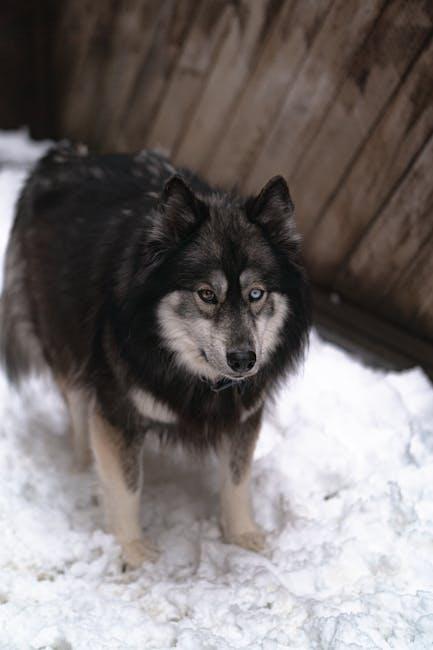How genetics influence a dog’s personality and behavior

When we think about what makes our furry companions unique, their wagging tails, playful antics, and loyal nature often come to mind. But have you ever wondered why your dog behaves the way it does or why it seems to have a personality all its own? The answer might be closer than you think, embedded in the intricate tapestry of genetics. Just like humans, dogs inherit a complex set of genetic instructions that shape not only their physical characteristics but also their personality and behavior. In this article, we’ll embark on a fascinating journey into the world of canine genetics, exploring how inherited traits influence everything from a dog’s temperament to its energy levels. Whether you’re a lifelong dog lover or a curious pet owner, understanding the genetic underpinnings of your dog’s behavior can deepen the bond you share and provide insights into their unique quirks and charms. So, grab a cozy spot, perhaps with your pup by your side, and let’s delve into the science of what makes each dog truly one-of-a-kind.
Understanding the Genetic Blueprint of Canine Behavior
Dogs, much like humans, inherit a unique genetic code that influences their behavior and personality. This genetic blueprint plays a crucial role in determining traits such as temperament, intelligence, and even specific skills. Genetics can explain why some breeds are more sociable while others might be more reserved or protective. For instance, a Border Collie might have an innate drive to herd due to generations of selective breeding for that specific behavior. Understanding these genetic factors can help dog owners nurture their pets more effectively and provide environments that cater to their natural inclinations.
- Temperament: Genes can predispose dogs to be more anxious, calm, or aggressive.
- Intelligence: Certain breeds are genetically predisposed to learn and respond faster to training.
- Skills: Some dogs are naturally inclined to excel in activities like hunting or agility.
While genetics lay the foundation for a dog’s behavior, it’s important to remember that environment and training also play significant roles. Balanced nurturing can enhance a dog’s natural tendencies and help them thrive. By understanding the genetic underpinnings of canine behavior, we can better appreciate the unique quirks and qualities of our furry companions.

Decoding Breed-Specific Traits: What to Expect from Your Furry Friend
When it comes to understanding your dog’s unique quirks and characteristics, delving into their genetic makeup offers a treasure trove of insights. Genetics play a pivotal role in shaping not just the physical appearance of our canine companions, but also their intrinsic behaviors and temperaments. For instance, breeds like Border Collies, renowned for their herding instincts, are often brimming with energy and require ample mental stimulation. Conversely, the laid-back nature of a Bulldog might be more suited for a more relaxed lifestyle. Recognizing these breed-specific traits can help you tailor your training and lifestyle to better suit your furry friend’s inherent needs.
Some traits that are heavily influenced by genetics include:
- Energy Levels: Certain breeds are naturally more energetic, requiring regular exercise to stay happy and healthy.
- Social Behavior: While some dogs are predisposed to be sociable and friendly, others might be more reserved or territorial.
- Trainability: Breeds like the Labrador Retriever are known for their eagerness to please, making them easier to train, whereas others may require more patience and consistency.
- Prey Drive: Breeds with a high prey drive may need more controlled environments to prevent unwanted chasing behaviors.
By understanding these genetic predispositions, you can foster a more harmonious relationship with your dog, ensuring their behavioral needs are met and nurturing their natural inclinations.
Nurture Meets Nature: Balancing Genetics and Environment in Dog Training
In the fascinating world of dog training, understanding the intricate dance between genetics and environment is key to nurturing well-rounded companions. Genetics play a pivotal role in shaping a dog’s personality and behavior, laying the groundwork for traits such as temperament, intelligence, and even certain instinctual behaviors. Breed-specific tendencies often provide a roadmap for trainers, helping them tailor approaches that resonate with a dog’s innate predispositions. For instance, a Border Collie might display a natural flair for herding due to its genetic lineage, while a Labrador Retriever often exhibits an eagerness to please and a love for water.
However, while genetics set the stage, the environment is the brush that paints the picture. A dog’s upbringing, experiences, and the training methods employed can significantly influence how genetic traits are expressed. Consider these elements that intertwine with genetics to shape behavior:
- Socialization: Early exposure to diverse environments and social situations can enhance a dog’s confidence and adaptability.
- Training Techniques: Positive reinforcement can nurture a dog’s natural abilities, making learning a rewarding experience.
- Living Conditions: A supportive and stimulating environment can mitigate undesirable genetic tendencies.
By blending an understanding of genetics with mindful environmental influences, dog owners and trainers can unlock the full potential of their furry friends, fostering a harmonious relationship that celebrates both nature and nurture.

Practical Tips for Embracing Your Dogs Unique Genetic Personality
Understanding your dog’s genetic makeup can be a game-changer in nurturing their distinct personality and behaviors. Here are some practical tips to help you align with their genetic inclinations:
- Learn About Breed-Specific Traits: Familiarize yourself with common traits associated with your dog’s breed or mix. This knowledge can provide insights into behaviors and tendencies that are hardwired in their DNA.
- Customize Training Approaches: Tailor your training methods to suit your dog’s inherent traits. For instance, if your dog has a strong herding instinct, incorporate activities that satisfy this natural drive.
- Engage in Enrichment Activities: Provide mental and physical stimulation that resonates with their genetic disposition. Whether it’s puzzle toys for a problem-solver or agility courses for a high-energy breed, keep them engaged in ways that honor their instincts.
- Foster Socialization: Recognize your dog’s comfort levels with social interactions. Some breeds are naturally more sociable, while others may need gradual exposure to new experiences and environments.
By embracing these tailored approaches, you can build a harmonious relationship that celebrates and supports your dog’s unique genetic personality.



